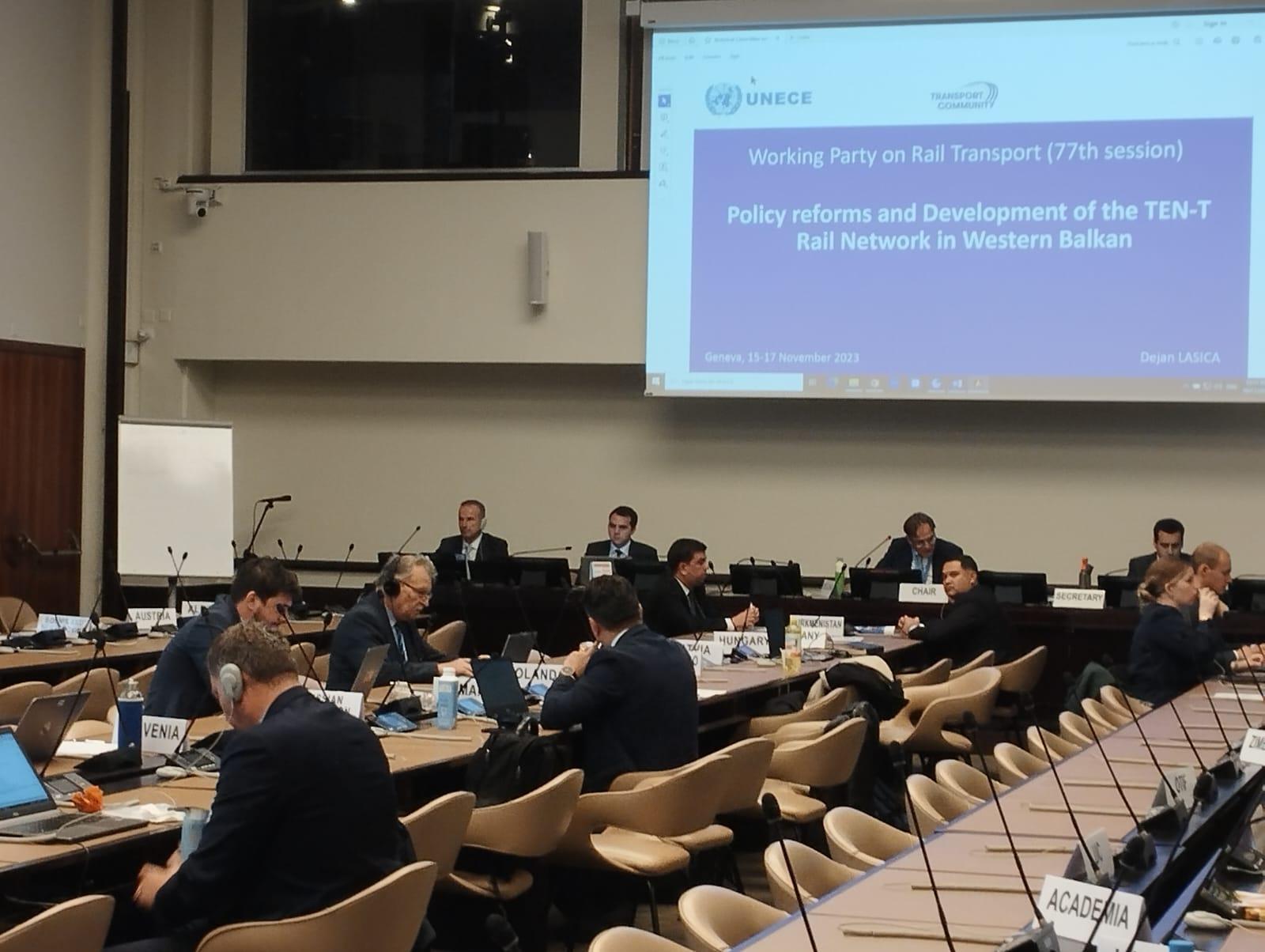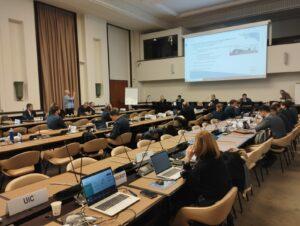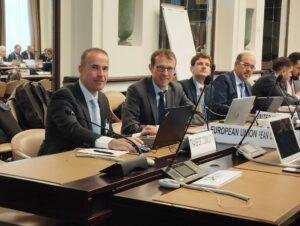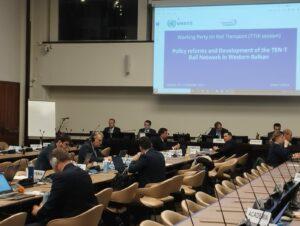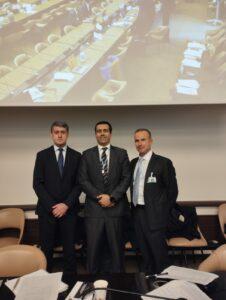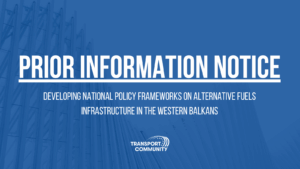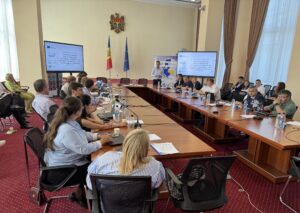GENEVA – The Transport Community took part in the United Nations Economic Commission for Europe’s (UNECE) 77th session of the Working Party on Railway Transport (Inland Transport Committee) where its representative contributed to discussions centered around the future of international rail traffic.
At the session’s workshop “The Future of International Rail Passenger Transport”, which took place in the Palace of Nations in Geneva, Switzerland, on 16 November, Transport Community’s Rail Policy Coordinator, Mr Dejan Lasica, spoke about policy reforms and development of TEN-T rail network in the Western Balkans.
The event voiced strong concerns about the potential consequences of a “do-nothing” scenario on the future of rail passenger traffic in the region. However, with the transformative impact of strategic changes in government policies, international rail traffic could be significantly increased. One of the key tools identified to drive positive change was the content of the Public Service Obligation Contract between passenger undertakings and relevant authorities. This contractual framework was deemed crucial for all parties, including those in South East Europe.
The event witnessed the first presentation of railway policy and infrastructure conditions from the Western Balkans within the United Nations framework. During his presentation, a proposal was put forth by Mr Lasica, suggesting the re-establishment of a train connection from Ljubljana to Belgrade, with branches extending to Sarajevo, Podgorica, and Skopje.
The workshop drew insights from the participation of more than 70 delegates representing over 50 countries, international organisations, EU institutions, and various associations.
Among the attendees were representatives from the regional partners and observers – Bosnia and Herzegovina, and Georgia, as well as representatives of the European Commission’s Directorate-General for Mobility and Transport.

